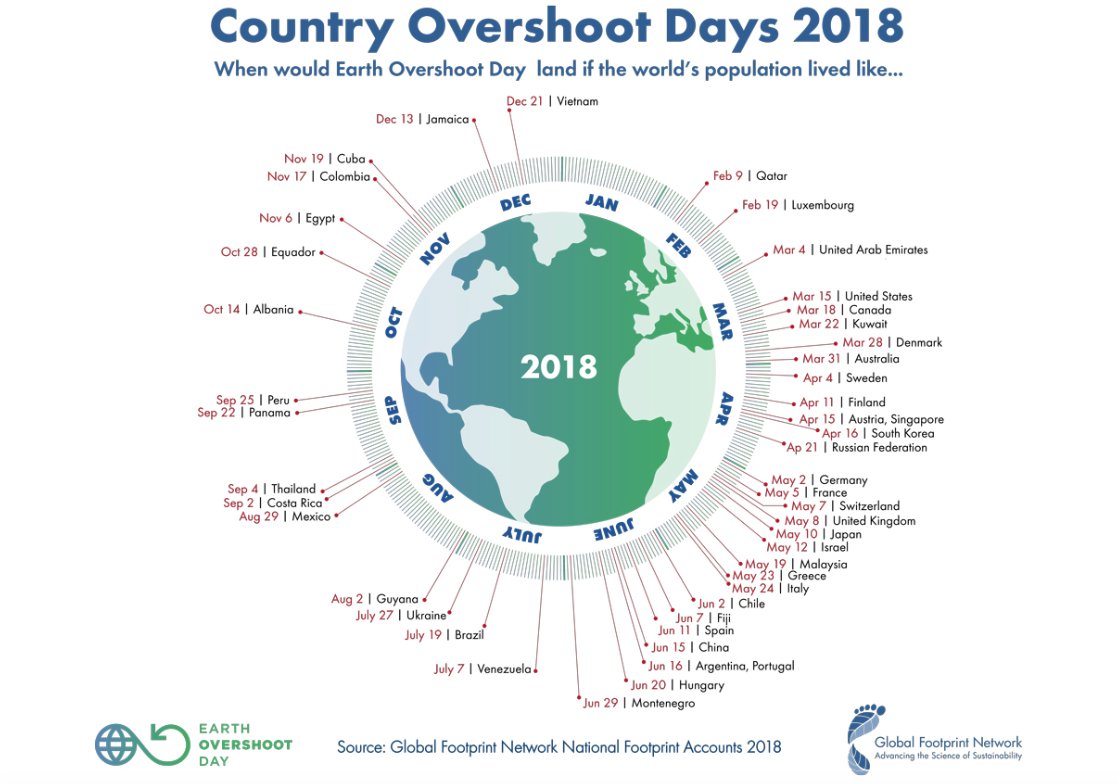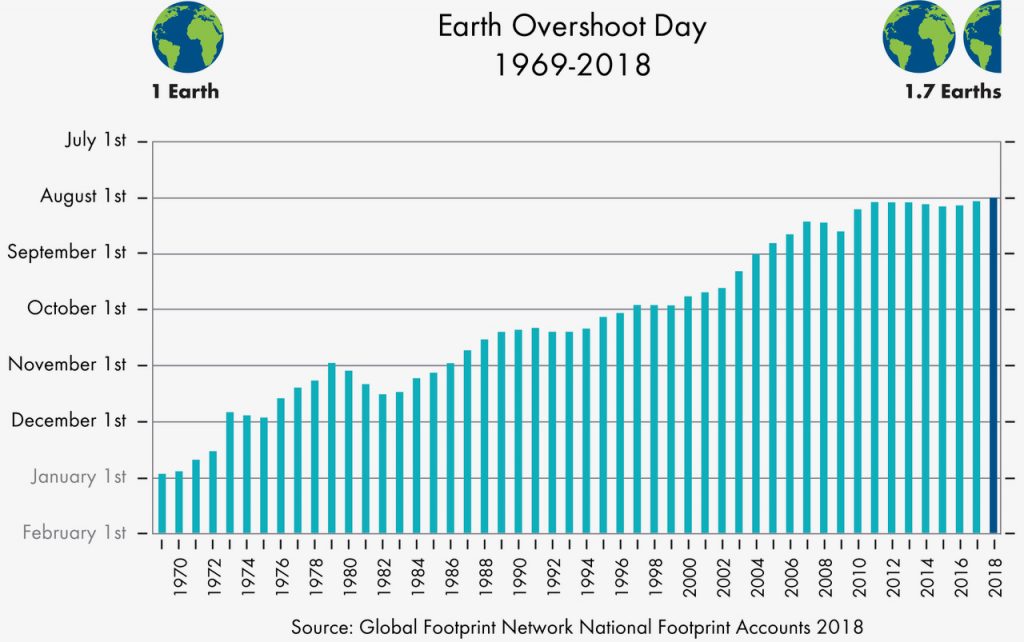As per the Global Footprint Network (GFN) the world has already consumed this year’s annual budget of natural resources. Having reached its maximum limit on 1st August itself, the earth overshoot day serves as an annual report card, reminding us of our promises to reduce carbon footprint, control climate change and conserve our environment.
Notably, humans already overshot nature’s annual budget in early 1970s itself and ever since this has been creeping up. Another significant fact is that every day, every minute past the overshoot day is equivalent of drawing down from the natural resource savings than living of interest. To understand this let us first explore the concept of Earth Overshoot Day.
What is Earth Overshoot Day?
Also known as Ecological Debt Day, it is an illustrative calendar date highlighting precisely when the “humanity’s resource consumption for the year exceeds Earth’s capacity to regenerate those resources that year.”
Developed by Andrew Simms (New Economics Foundation), the EOD campaign is launched each year by global footprint network, in order to raise awareness of Earth’s limited resources. It is calculated as follows: World Biocapacity/ World Ecological Footprint) X 365 = Earth Overshoot Day
Ecological Bank
Similar to a banking system, GFN tracks and measures a population’s demand for natural resources and the capacity of ecosystems’ supply of resources and services. It is the nation’s/ state’s or city’s biocapacity which represents its naturally productive land and sea area, including forest lands, cropland, grazing lands, fishing grounds, and built-up land on the supply side. Whereas the demand side is represented by the ecological footprint—population’s demand for livestock and fish products, plant-based food and fiber products, timber and other forest products, space for urban infrastructure, and forest to absorb its carbon dioxide emissions from fossil fuels. Both measures are expressed in global hectares.
In case the demand for ecological resources exceeds the supply, then that region runs in an ecological deficit. Such a region can meet its demand by “importing, liquidating its own ecological assets (such as overfishing), and/or emitting carbon dioxide into the atmosphere.” Since there is no net import of resources to the planet, the planet is running in ecological deficit, or it has overshot its budget, as of 1st August 2018.

Way Forward
However, on the positive side, the date hasn’t moved or changed since 2011 despite population growth. Such a scenario presents us with an opportunity to reverse the trend and move the date forward. However there are few critical changes required to achieve this:
- Green Auto mobility— Choose greener means of transport such as hybrid and electric cars.
- Strive for Zero Waste— One of the key means here would be your participation in #beattheplastic movement, especially more so of the single-use plastic.
- Adopting Vegetarianism— lesser meat and a more plant-based diet is the key here. As such any livestock related activity generates significant amount of ecological footprint and in fact accounts for 14.5% of greenhouse gas emissions produced by humans
- Choosing Efficient Mode of Travel and Transport— car pooling or choosing a more fuel-efficient airline to travel. Also, people can look at a more eco-conscious vacation which includes not renting a car or eating at a local food joint.
It is important to understand that for any environment conservation initiative to be successful we need to control humanity’s ecological footprint which comprises of its carbon footprint. Thus, to see any significant mitigation of climate change, it is crucial to end resource overuse and control the average global temperature rise below 2 degrees Celsius and as close to 1.5 degrees Celsius, which is below the pre-industrial levels (Paris Climate Change Agreement). Ultimately, this will be instrumental in warding off the adverse impacts of climate change like intense heatwaves, droughts, flooding and storms.

